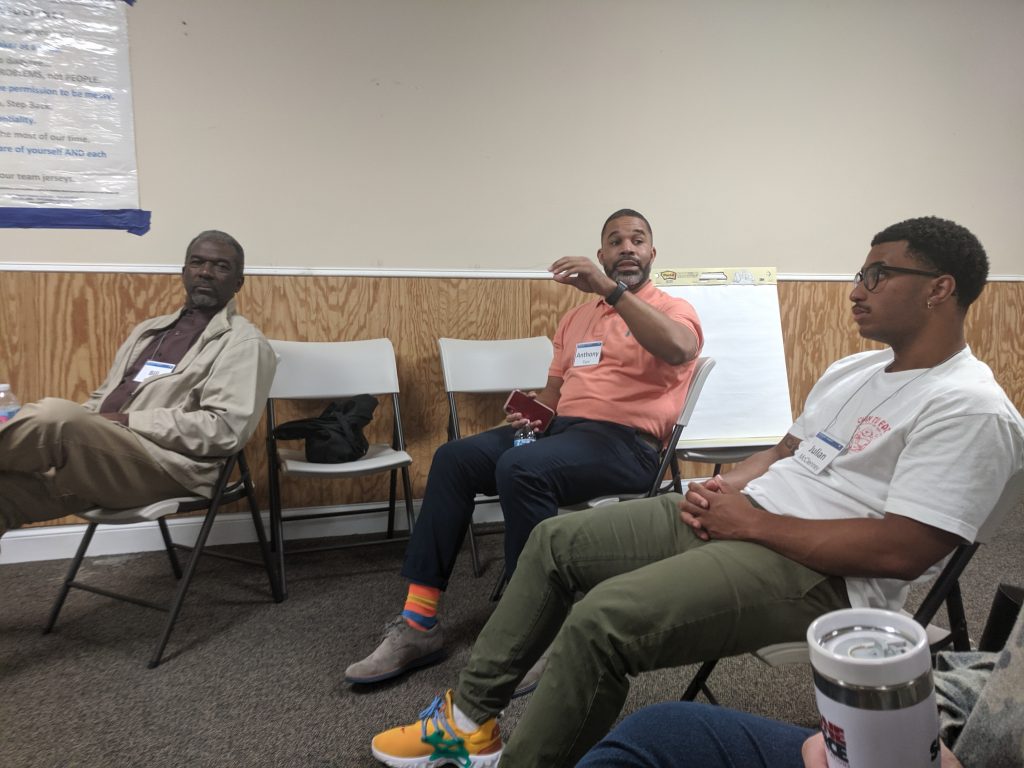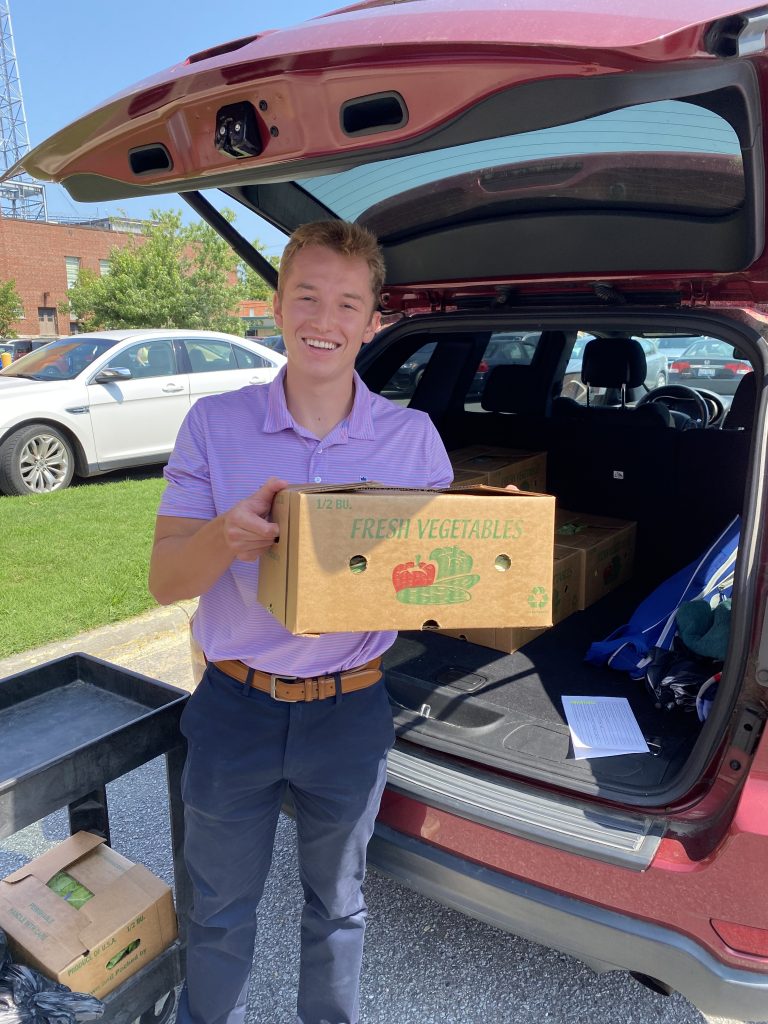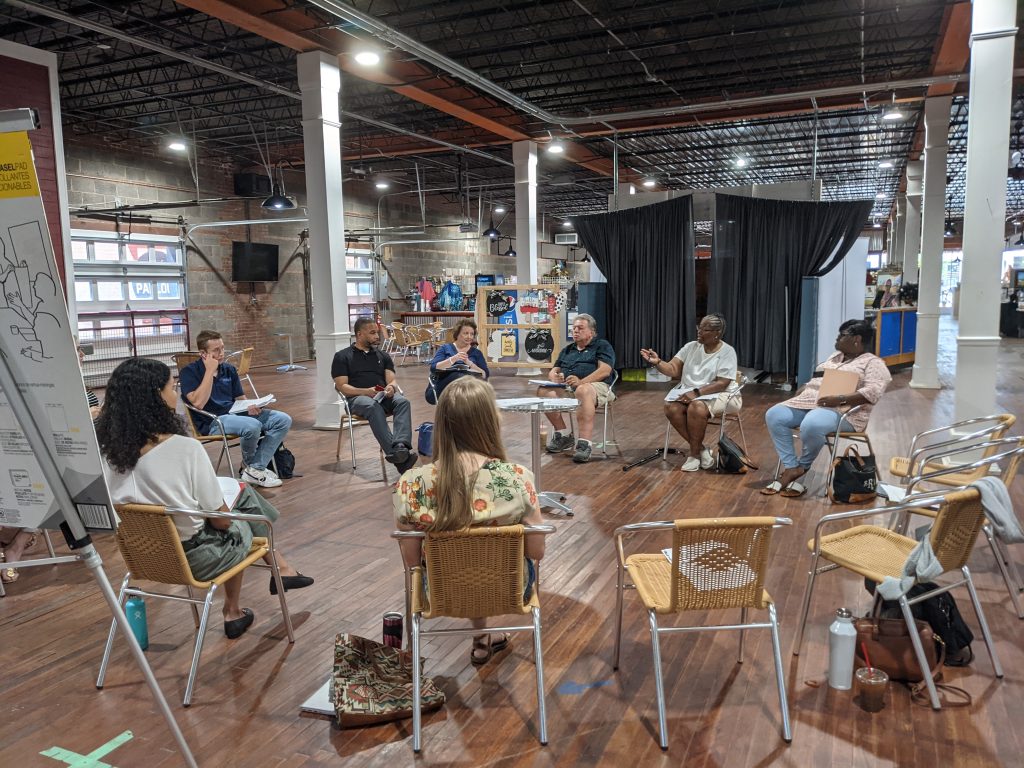By Griffin Sansbury, 2021 SECU Public Fellows Intern with the Eastern Community Care Foundation in Washington, NC


Anthony Tyre is program director and founder of the nonprofit Eastern Community Care Foundation. He is also executive director of Clear Point, a mental health and addiction recovery center in Washington, NC. His licensures include being a National Certified Counselor, Licensed Clinical Mental Health Counselor and Licensed Clinical Addiction Specialist Associate. Mr. Tyre is active within the greater Beaufort County community and participates in various grassroots coalitions. One such coalition is the Healthy Eating Active Living (HEAL) Collaborative. HEAL brings together different community members with the goal of improving food security, educating the public about healthy eating and active living, increasing revenue for local farmers and working to change legislative and advocacy solutions throughout Beaufort County.
Below, I interview Mr. Tyre about his work in the HEAL Collaborative and his motivations for involvement (responses are paraphrased).
Q: What motivates you to participate in the HEAL Collaborative?
A: I think it connects well with the behavioral health work I do with Clear Point. I take a holistic and community-based approach to treatment. If someone’s basic needs are not being met, such as food and exercise, then problems will arise in other areas. It is important to one’s mental and behavioral health to have food security, which is why I participate in HEAL.

Q: What do you find most challenging in your work with HEAL?
A: Funding. Personally, and I know for others as well, I have a lot of big ideas. However, it is hard to implement them because of a lack or difficult in gaining funding.

Q: What do you find most rewarding about being a participant in HEAL?
A: Being able to come together with different community groups and truly make a difference. A perfect example is the healthy food donation boxes that we give to people in need. This work is bigger than the individual is. It doesn’t include “grasstops,” but rather is a “grassroots” initiative to help move things forward for the community. With the food box delivery, I am able to interact and say hi to various community members and build connections. For me it is really about the community-based and personal work.
Q: Can you explain in your own words what you mean by “grasstops” and “grassroots”?
A: Grassroots are boots on the ground, community-based folks. For example, HEAL is grassroots because you have people coming from their homes, their work, or their retirement to make a personal difference in the community. Grasstops are large organizations, government bureaucracies, and city officials.
Q: What makes HEAL different than other community groups or organizations?
A: It is a grassroots collaboration above all else. There are no CEOS, no one too big for the community. Also, we are directly connecting with the people we serve. For example, with farmers we are involving them in our discussions, directly asking them what they need. We aren’t barging in, buying their farms and limiting their voice. We are directly asking them how we can support them and allowing them to have a seat at the table, a voice in the discussion.

Q: Is there anything else you would like to highlight for the HEAL newsletter?
A: I think as we move forward, efforts like HEAL are going to be more and more important because it is a true collaborative effort. We work with the community and the ones physically at the table.
While working with Mr. Tyre, ECCF and the HEAL Collaborative, I have found direct service to be very impactful. I value Mr. Tyre’s discussion of grasstops vs grassroots. Grasstops organizations hold more political, economic and social power that allows them the capacity to do good. However, they also might be more removed from the communities they are influencing and lacking personal connections. Grassroots organizations wield less power but are more directly involved in the community and personally know those who they are helping. While both have advantages and disadvantages, I am proud to work for a grassroots nonprofit that permits me the opportunity to give the community a voice and provide sustainable solutions to them, like through the healthy food box delivery.
